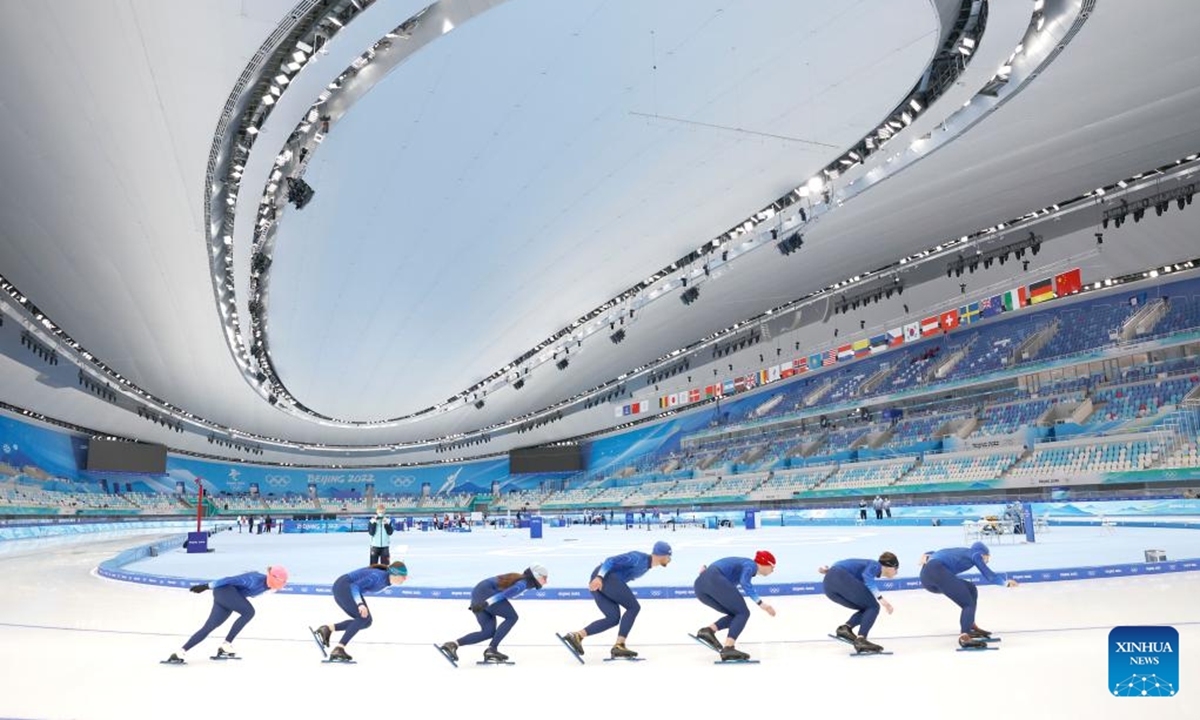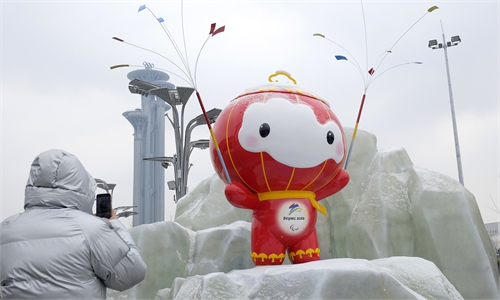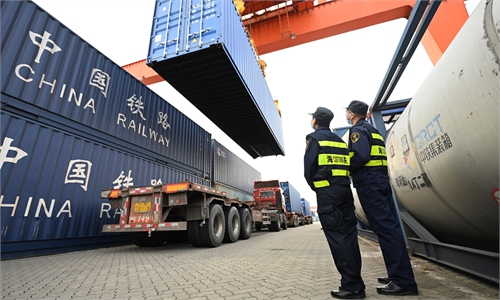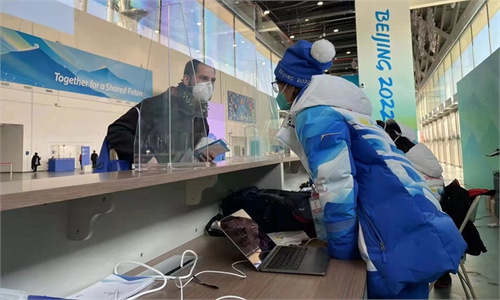
Athletes take part in a training session at the National Speed Skating Oval in Beijing, capital of China, Jan. 28, 2022. (Xinhua/Ding Xu)
With just days remaining before the opening of the Beijing 2022 Winter Olympic Games, the Chinese delegation's anti-doping preparations have entered the final stage as the China Anti-Doping Agency reiterated its position of "zero tolerance" on doping.
Following the successful experience of China's delegation during the Tokyo 2020 Olympics and now with consideration for the characteristics of winter sports preparation, China vows to implement a stricter, more comprehensive plan and higher-standard plan for the Winter Olympics to ensure "zero" doping problems during the Games.
In the four years of anti-doping preparations for the Winter Olympics, strict inspection, increased investigation of violations and severe punishment were the most important measures.
According to the Xinhua News Agency on Monday, Chen Zhiyu, director of the China Anti-Doping Agency, revealed that since March 2018, more than 7,000 anti-doping tests have been conducted among athletes in preparation for Beijing Winter Olympic Games, making it the longest anti-doping period in China's Olympic preparation history, compared with 1,025 tests conducted for PyeongChang 2018 Olympic Winter Games
More than 1,100 overseas inspections were conducted for Chinese training teams abroad by entrusting international inspection authorities (ITA) or local anti-doping authorities, Xinhua reported. Overseas inspection samples were tested in overseas laboratories accredited by the World Anti-Doping Agency (WADA), and the data will be reported to WADA in a timely manner to ensure openness and transparency.
As in Tokyo, about 1,700 tests were carried out in three rounds of screening which began on December 20, 2021 during the final run-up to the Beijing Winter Olympics, with the third round ending on the day the athletes arrived in the Olympic village to ensure "full coverage," Chen said.
The crime of stimulant use in sports competition has been added to the amendment to China's Criminal Law, which came into effect on March 1, 2021. "This is the strongest measure of zero tolerance [toward doping] at the national level and will undoubtedly significantly increase the severity of penalties and improve deterrence," Chen was quoted by Xinhua.
Also, the China Anti-Doping Agency emphasizes anti-doping education and carries out various online and offline activities. All the athletes and support staff have to pass several rounds of online study and examination, complete an oath, and accumulate enough points to qualify for the Games. So far, more than 1,400 people from national teams have studied and passed their exams for anti-doping education.
As the COVID-19 pandemic is still spreading around the world, with sporadic outbreaks in China posing unexpected challenges to anti-doping efforts, Chen said the risks in the preparation have raised higher requirements for their work.
Because many Chinese national teams were trained overseas, it is necessary to ensure the health and safety of both athletes and doping control officers during the pandemic. More than 26,000 tests have been carried out and no one has been infected, Chen noted.
"Our national team will be clean to participate in the Games and will be able to achieve the goal of China's delegation," He said.
Previously, The Beijing Organizing Committee for the 2022 Olympic and Paralympic Winter Games signed a Memorandum of Cooperation (MoC) with the International Testing Agency (ITA) and other relevant government departments on January 20 to cooperate on anti-doping investigative information and intelligence.
The signing of the MoC fully demonstrates that the Chinese government and the Beijing 2022 Organizing Committee always hold "zero tolerance" toward doping, said Zhang Jiandong, executive vice president of the Beijing 2022 Organizing Committee.




